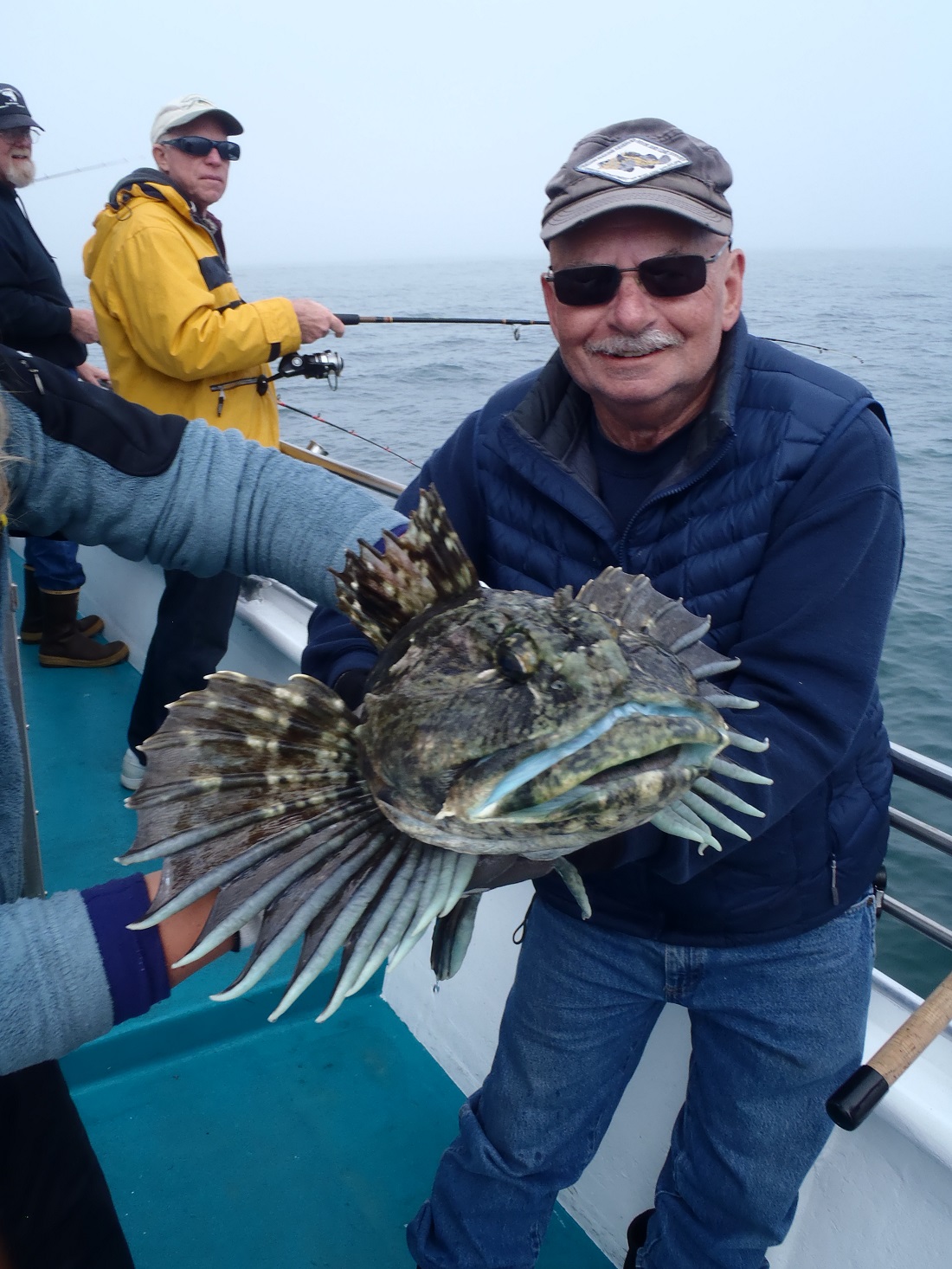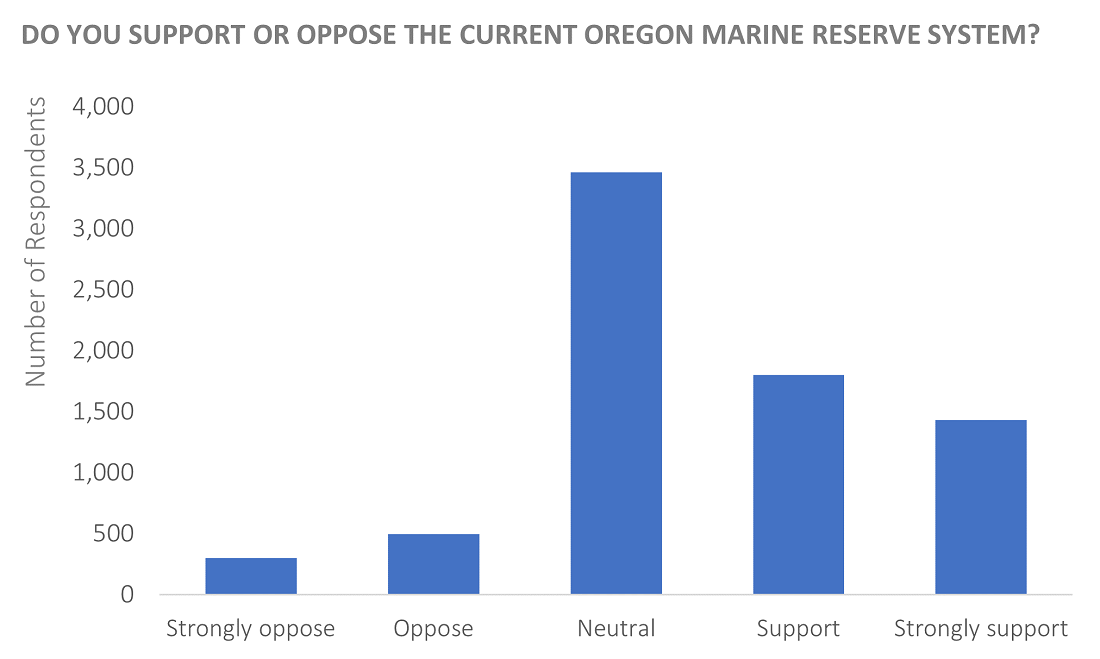RECREATIONAL ANGLER SURVEY
ODFW’s human dimensions research investigates how Oregon’s marine reserves impact communities. A recent study conducted this summer was focused on the recreational angling community. We sent an online survey to Oregon residents who purchased an angling license in 2019. Thanks to the 7,582 anglers who completed the survey, we now have some preliminary results to share with you.
First, we wanted to know how much recreational anglers knew about the marine reserves. Most respondents (59%) said that they were aware that Oregon had marine reserves. We then asked only those participants who were aware of the reserves follow-up questions about marine reserve knowledge and perceptions.

We provided a list of 20 names and asked respondents to select the five correct marine reserve names. For example, a correct answer would be “Cape Falcon Marine Reserve” while an incorrect answer would be “Fort Stevens Marine Reserve.” Many (48%) selected the option “I don’t know” and didn’t select any names. Of those who did select names from the list, the average score was 36% correct (1.8/5) with few (14%) correctly selecting all five names. The next question was more difficult and asked respondents where the marine reserves were located within zones on a map of the coast. Even fewer (2%) correctly identified all five locations.
We then asked the participants if a marine reserve had caused them to change their angling behavior, with 3,898 (88%) saying no. Of those who said yes, 46% still fished in the same general area and 29% fished in the ocean more than five miles from where they previously fished. Some (18%) chose to only fish in freshwater now, and 3% fished closer to a marine reserve.
When we asked respondents if they supported or opposed the reserves, 11% of respondents opposed the current Oregon marine reserve system, 43% supported the reserves, and 46% had no opinion.

These preliminary results have not yet been weighted by demographics. We are running additional analyses and will be writing our report soon, so stay tuned.
